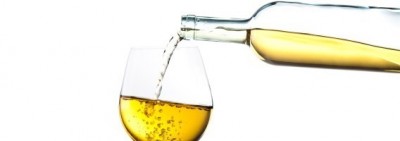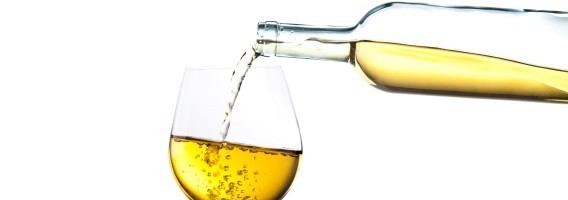
One familiar thing about the United Kingdom for me is that I frequently hear South African accents.
Here in the colonial heartland, I have met a lot of folks like me: born to South African [Ashkenazi] Jewish parents abroad, raised abroad, and with varied ties to South Africa. Some, like me, maintain citizenship in South Africa, as well as close emotional and cultural ties to the country. Others – more, perhaps – see South Africa as a country “where we used to be.” This tendency is confirmed by expatriates themselves. Some go back every year and buy houses in Hermanus or Simon’s Town for their vacations, others see South Africa firmly as a figment of the past. Those who grew up in the country regardless speak with the same distinctive, “crisp” family of accents that mark white South Africans. (In case you’re wondering, Ashkenazi Jews are white and have long been considered such in South Africa.)
My reception varies. Sometimes I am considered South African, sometimes “pseudo-South African” (whatever that even means), and sometimes not as either. Since my identity number one is Jewish – one that I believe will outlast the United States, South Africa, or Israel in existence – I do not particularly care about this terminology. (Calling someone “pseudo” anything is a fun insight into insecurities though, so I do treasure when it happens.) Oftentimes, a certain intimacy is assumed – and then, from disgruntled expatriates, the white whine starts.
Ah yes, the white whine. For those of us with ties to South Africa, it is a familiar hum, a residue of the apartheid system from its quiet (if not public!) former supporters – or even those who unthinkingly harken back to “easier days.” Sometimes, it takes a starkly racist form – with complaints about how “they” (black South Africans) are supposedly “unable to run a country,” or jokes littered with the Afrikaans equivalent of America’s most frequently used racial slur. In other cases, the racism is less apparent – rather, they take the form of reminiscences for a happier time “before all the crime” (and majority rule), “when things were easier” (and embedded in a state-sponsored racial ethnocracy), and when “people were good to one another” (LMAO). It is unchecked white privilege, cloaked in nostalgia and cuddly feelings.
As some of you may recall from my past pieces, I am a bit of a scholar (and bibliobibuli) of whiteness and how it is constructed and maintained. So I keep my cool during these rants – after all, it is not always that your fieldwork comes to you! – and listen closely, lest there be something that I think worthy of future research (and deconstruction). Whitewash, for example. But after being treated to a few long laments on the “decline” of South African Jewry – and a nostalgia for the “good old days” – when most Ashkenazi Jews in South Africa gladly went along with the apartheid system – I had to pursue this question: what does white whine mean in the Ashkenazi Jewish context?
Firstly, it is a sign of a certain degree of assimilation into white South African norms, practices, and cultural assumptions. There is a frequent effort by many white Jewish South Africans to marginalize this aspect – by claiming a position of being on the “edge” of whiteness or invoking a heritage of Jewish anti-apartheid activism. However, most Jews – as I said – gladly played along with the apartheid system (a collusion that drove my own father z”l’s emigration). And that playing along was part and parcel of a wider cultural assimilation: we speak English and sometimes Afrikaans, idealized the white suburban masculinity that other whites did, and made pretty much the same cultural assumptions other whites did. In fact, many still do. We serve malva puddings at Shabbat dinner and hold kosher braais, idealize our rugby stars and fetishize all things British. So this white whine is just another part of the fact that most South African Jews are not distinctive from other white South Africans in many aspects – and in fact participate and are complicit in the same racialized structures and institutions.
…which are, however slowly, changing. South Africa, of course, has a lot of problems. But South Africa has also made so much progress: in access to electricity, in education of the population, in economic growth, in falling crime rates. And South Africa is now democratic – which is in and of itself incredible! Of course, this means white South Africans are no longer in a fully hegemonic position.
So this nostalgia – for that “simpler” time when in fact whites were in complete control, is reflective of an inability to account for change. It is a way of saying “things have not changed in our mind” – and one that allows the old racist hierarchies to remain intact.
In addition, it is a way for many to divert responsibility for their complicity in the apartheid system – which after all was as sustained in “habits of privilege” and the klein apartheid (petty segregation) that whites engaged in on a daily basis. Participation in the economic system, in the ways of living, even in the Eurocentric culture that is still pervasive in White South Africa today – these are all daily complicities in white hegemony. Even my own assumptions of South Africa as a diasporic homeland suffer from this complicity. To harken back to this imagined nostalgia of the nice is to whitewash the collusion white folk in any racist society must start to come to terms with. (This applies to America and Israel too.)
Why does this matter, what some uptight and irritated “when-we” emigrants have to say about the sometimes messy, often absurd, but beautiful South Africa they left? Why should we care about what they thought was “nice”? The “nice,” in fact, matters a great deal – it cloaks the systems behind it. When I explained to someone this aspect of my interests, I said “I want to smash the ‘nice.’” What sort of “nice”? The “nice” that white whine seeks to maintain and protect – a nice built on an experience for others that is anything but nice. In the South African context, in the American context, in the Israeli context, in the Dutch and this “nice” is not about tidy gardens and small-town cuteness, but about the legitimation of oppression and indignities experienced by populations of color for centuries. It is about romanticizing a time when South Africa was governed unjustly (and in other contexts too) – and how that legacy is still starkly apparent today.
And as Jews – commanded to pursue justice, South Africans, “diaspora South Africans,” all of these, or none, this is a niceness we are obligated to smash to pieces.
Jonathan Katz is an American student studying at Oxford University in England.

